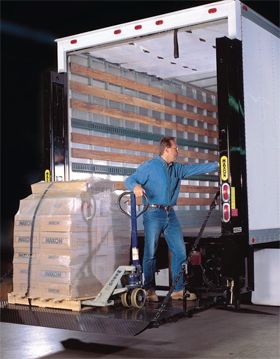How Do Air Brake Chambers Work and How to Test Them
Your air brake system performs many essential commercial truck functions, impacting service, parking, and emergency brake operation. Learning how air brake chambers work and how to test them is integral to brake performance and safety. Our heavy-duty truck maintenance team knows leaks can cause serious issues if ignored or overlooked. We’re here to help you keep your commercial vehicle running safely with these essential air brake maintenance tips.
How Air Brake Chambers Work
Heavy-duty vehicles that need significant, reliable stopping power use air brakes rather than hydraulic ones. When you press the pedal on an air brake system, air moves into the brake chamber turning the S-cam and pushing the pads against the drum to stop the vehicle. When you release the pedal, the brakes disengage. Unlike hydraulic brake systems, which can fail with leakage and low pressure, if the pressure in an air brake system is too low, the decrease will cause the springs to automatically engage (even if you’re not pressing the brake pedal). This mechanism allows for brake use in emergencies but also essentially grounds the vehicle until you fix the leak and restore air pressure. For this reason, routine air brake system checks are essential to diesel truck repair and maintenance.
Common Air Brake Chamber Issues
Air brake system DOT inspection violations are common. The most frequent culprits include leaks in:
- Valves
- Air lines
- Hoses
- Connections
- Gladhand seals
- Brake drums
- Diaphragms
Monitoring for Air Brake Leakage Warning Signs
Routine monitoring is the best way to prevent air leaks and identify brake repair needs before they cause operational issues. Your first line of defense is daily monitoring for warning signs of air brake system leakage, such as:
- Low air pressure
- Kinks, wear, and visible damage to air brake system components
- Air brake system takes longer than usual to charge
- Loud hissing with service brake application
- Loss of braking power with a squishy pedal feel
- Smoking tires/tire fires from operating with low air pressure
- Pushrod stroke limit measurements outside regulation parameters
How to Test Your Air Brake System
Our commercial truck maintenance and repair team also recommends routine physical air brake system inspections. To test your air brakes:
- Turn off your engine.
- Release your tractor protection/parking brake valve (yellow).
- Roll down the truck window, listening for air brake diaphragm or line leaks.
- Write down the current air pressure.
- Apply and hold the foot brake for one minute, noting any drop in pressure after brake use. If air brake system pressure drops more than three pounds, take your vehicle to your local diesel truck maintenance and repair shop for a closer inspection.
Need New Valves, Sensors, and Components?
We keep our massive 10,000-square-foot parts warehouse fully stocked with commercial truck parts to keep your rig running smoothly in and around Santa Clara, San Jose, Sunnyvale, Morgan Hill, Gilroy, Campbell, Sunnyvale, Cupertino, and Santa Cruz. We can handle all your big truck parts and repair needs, from minor maintenance to major repairs and aftermarket accessory additions.
Ensure Reliable Braking with an Air Brake System Inspection and Maintenance
Are you short on time to learn how air brake chambers work and how to test them, experiencing problems with your air brake system, or need help ensuring adequate fleet maintenance? We can help. Contact Diamond Mitsubishi Fuso at 408-263-7300 to schedule an air brake system inspection today.




